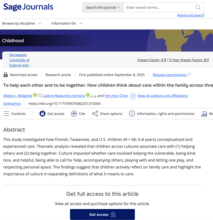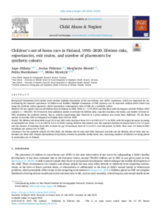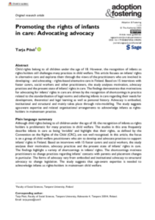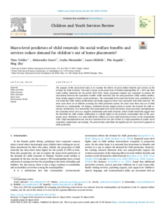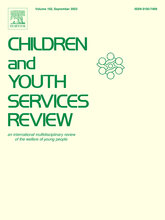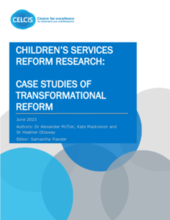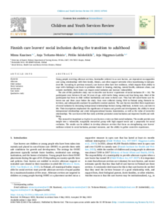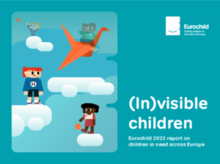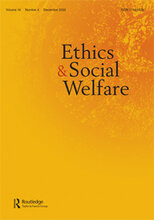Displaying 1 - 10 of 59
This study investigated how Finnish, Taiwanese, and U.S. children conceptualized and experienced care.
This news article explores how a new demographic study reveals that the likelihood of Finnish children experiencing out-of-home care at least once during childhood has doubled—rising to an estimated 6% in 2020, compared to about 3% in 1993—largely driven by an increase in residential care placements.
Using nationwide register data from Finland (1980–2020), this study shows that the lifetime risk of children entering out-of-home care more than doubled, with a notable rise in residential care placements. At the same time, the average duration of care shortened, and the likelihood of children returning home before age 18 increased significantly.
This article explores how infants’ rights in alternative care are understood and advocated for by practitioners in Finland, drawing on interviews with foster carers, social workers, and other professionals. The findings show that advocacy is driven by recognition of gaps in standardised practice and is enacted through embodied, institutional, and structural approaches, highlighting the need for age-aware expertise to fully recognise infants as rights holders in care.
The purpose of this macro-level study is to examine the effects of social welfare benefits and services on the demand for child removals. The study is based on the panel data of Finnish municipalities and their social welfare indicators for the period 2010–2021.
This analysis considers foster care regulations in three jurisdictions in Finland, New Zealand, and Wisconsin, USA, and the effects of policy decisions on eligibility for relative caregivers and placement options for children in out-of-home care.
Case studies of transformational reform programmes examined a range of approaches to the delivery of children’s services to better understand the evidence regarding systems-level integration between children’s social work/social care with health services and/or adult social care.
The aim of this qualitative study published in the Children and Youth Services Review journal was to describe care leavers’ experiences of social inclusion in Finland. The results can provide new insight into a vulnerable, marginally researched group with high support needs and a propensity for social exclusion.
This report highlights the recommendations and priorities that EU decision-makers and national governments can do to support the most vulnerable children and prevent widening inequalities.
This study explores young people’s perceptions of their existential well-being during the transition after leaving care. The study involves peer research with young people leaving care in Finland and England.

